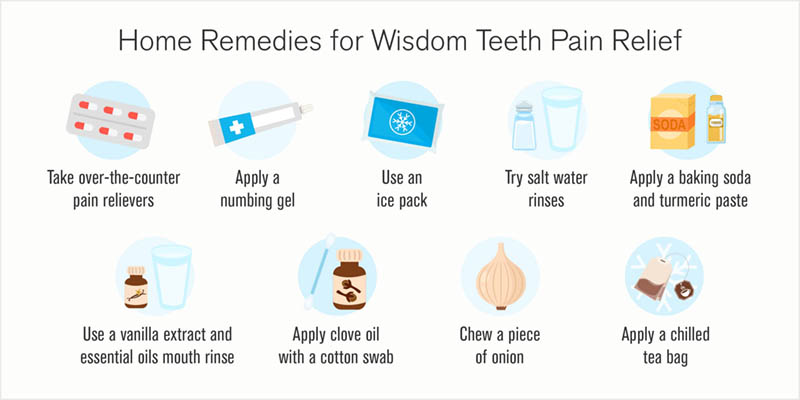Signs You May Need Your Wisdom Teeth Removed
October 15, 2024
Categories: Oral & Maxillofacial Surgery
Tags: Dentist, Oral & Maxillofacial Surgery, Dentistry, General Dentistry
 By Stephen P. MacLeod, BDS, Oral Health (Dental & Maxillofacial Surgery)
By Stephen P. MacLeod, BDS, Oral Health (Dental & Maxillofacial Surgery)
Wisdom teeth are the third set of molars that usually emerge in your late teens or early twenties and can sometimes cause more harm than good. For many, these teeth grow in without issue. However, for others, wisdom teeth can become a source of significant discomfort and health problems. If you’re experiencing certain symptoms, it might be time to consider wisdom teeth removal.
1. Impacted wisdom teeth
Wisdom teeth can become impacted if they grow in at an angle or don’t have enough space to fully emerge. This can lead to a host of issues, including pain, swelling, and even infection.
What to Expect: If your dentist determines that your wisdom teeth are impacted, they will likely recommend extraction. Removing impacted wisdom teeth can prevent further complications like infections or damage to adjacent teeth.
2. Oral pain and discomfort
One of the most common signs that you may need your wisdom teeth removed is persistent pain. As wisdom teeth push through the gums, they can cause pain, swelling, and tenderness in the back of your mouth. This pain often intensifies as the teeth continue to push through, especially if they are impacted, meaning they don’t have enough room to emerge properly.
Pain Management Tip: Over-the-counter pain relievers like ibuprofen can help manage discomfort, but persistent pain should be evaluated by a dentist or oral surgeon. They may recommend wisdom teeth extraction to prevent further complications.
3. Swollen or bleeding gums
Swelling and bleeding of the gums in the area where your wisdom teeth are coming in can indicate that the teeth are not emerging correctly. This can lead to gum irritation or infection, a condition known as pericoronitis.
Pain Management Tip: Rinsing with warm salt water can help reduce inflammation and kill bacteria, but it’s crucial to consult with a dentist if the symptoms persist.
4. Mouth cysts or infections
Impacted wisdom teeth can lead to the formation of cysts — fluid-filled sacs that can damage the surrounding bone, teeth, and gums. Rarely these cysts can develop into tumors, requiring more complex surgical intervention. Infections can also occur if bacteria become trapped around partially erupted wisdom teeth.
What to Expect: If an infection or cyst is detected, your dentist will likely recommend wisdom teeth extraction as soon as possible to prevent the issue from worsening.
5. Difficulty opening your mouth
If you notice that it’s becoming difficult to open your mouth fully, or you experience jaw stiffness, this could be a sign that your wisdom teeth are growing in at an angle, affecting the surrounding muscles and tissues.
Pain Management Tip: Apply a warm compress to the outside of your jaw to help relax the muscles and alleviate discomfort. However, extraction is often necessary to resolve the underlying issue.

Managing pain after wisdom teeth removal
If you've already had your wisdom teeth removed, or are considering doing so after experiencing certain symptoms, it's normal to experience some pain and swelling as your mouth heals after the procedure. Thankfully, there are ways to manage the pain.
The first 24 to 48 hours after extraction are typically the most uncomfortable. Applying ice packs to the outside of your face can help reduce swelling and numb the area. Your oral surgeon will likely prescribe pain medication. Take it as directed, and don’t wait for the pain to become severe before taking your next dose.
Stick to soft foods and avoid using a straw, as sucking can dislodge the blood clot forming in the socket, leading to a painful condition called dry socket. It's also important to gently rinse your mouth with warm salt water starting 24 hours after surgery to keep the area clean and reduce the risk of infection.
Most patients find that the pain subsides significantly after a few days, with complete healing taking about two weeks. However, if pain persists or worsens, it’s important to contact your oral surgeon.
If you're experiencing any of the signs mentioned above, it’s important to consult with your dentist. They can assess your situation and determine whether wisdom teeth removal is necessary. Managing pain both before and after extraction is crucial to your comfort and overall oral health. By understanding the signs and taking appropriate action, you can avoid the complications that come with wisdom teeth.
Stephen P. MacLeod, BDS, is a highly skilled oral and maxillofacial surgeon at Loyola Medicine, with extensive expertise in treating conditions affecting the face, mouth, and jaws. Dr. MacLeod holds dual degrees in both dentistry and medicine, and he is a Fellow of the American College of Surgeons. His clinical focus includes facial trauma, the management of diseases of the jaws and jaw reconstruction. Dr. MacLeod is dedicated to providing comprehensive, patient-centered care, utilizing the latest surgical techniques to ensure optimal outcomes for his patients.
Request a consultation today with Loyola's oral health experts to determine if wisdom teeth extraction is right for you.
